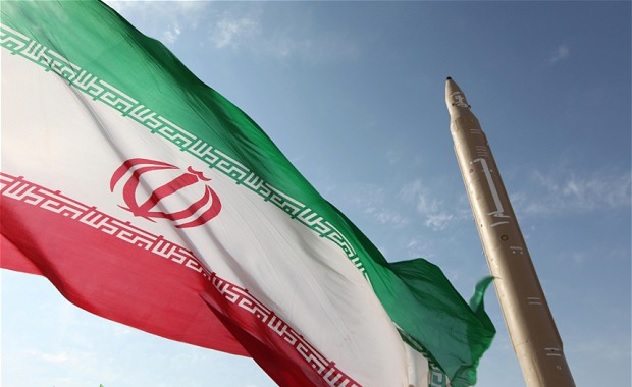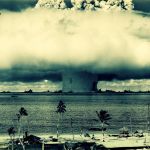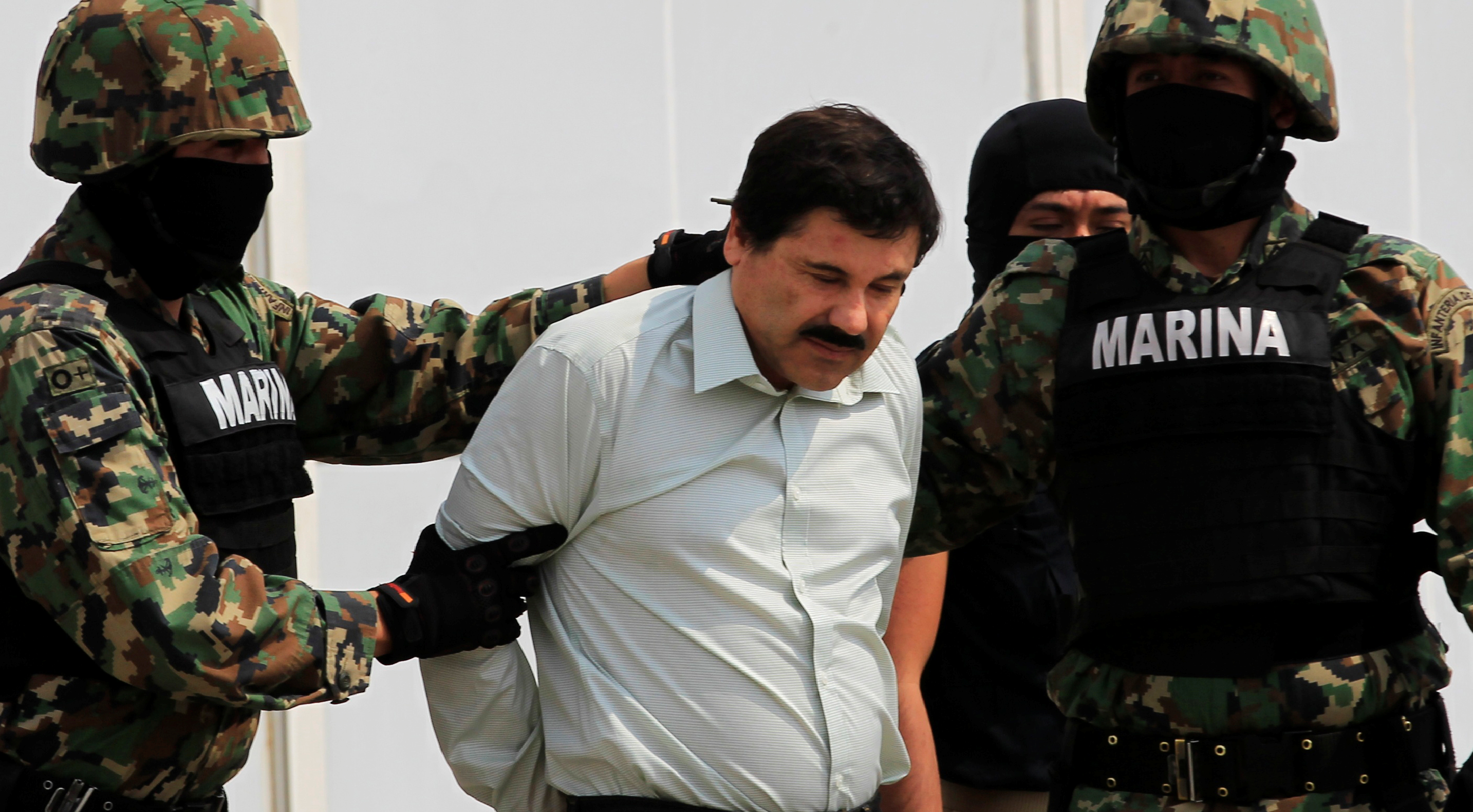After thirty years without diplomatic relations, the US and Iran finally come to an controversial agreement regarding Iran’s nuclear program
US relations with Iran have long been rocky, and US foreign policy toward Iran has been defined by US opposition Iran’s nuclear development program for over thirty years. It should be no surprise, therefore, that when the Obama administration recently approved a deal with Iran that lifted US sanctions and granted tacit US approval to Iran’s civilian nuclear program, the agreement was roundly criticized from many directions. However, the Iran nuclear agreement, while certainly limited in its scope and efficacy, is a legitimate and necessary diplomatic move and could prove instrumental in pushing back against any unsavory Iranian nuclear aspirations.
Background
Iran’s nuclear program began in 1957. In cooperation with the US under President Eisenhower’s Atoms for Peace program, Iran agreed to inspections of its nuclear facilities and technology in return for US assistance and technology.1 The intent of the Atoms for Peace program was to deter the worldwide development and usage of nuclear technology for military purposes.2
After the US-supported Shah was overthrown, the new Islamist government eventually took over Iran’s nuclear research and development program.1 In response to what the US considered the threatening nuclear trajectory that Iran was taking, the US imposed strict sanctions on Iran starting in 1995, and those sanctions have been in place ever since. The US has also received continued widespread cooperation from the international community, forming a powerful “sanctions regime” and dealing a crippling blow to Iran’s developing economy.3
Historically, Iranian presidents balked at negotiating with the US on nuclear issues, but when President Rouhani, allegedly a more pragmatic and moderate leader, assumed control of Iran, the possibility of negotiating a satisfactory nuclear agreement between Iran and the
international community began to seem more likely.4 Responding to increasing pressure from the international community, the Obama administration entered into discussions with Iran in March 2013. Ultimately, these discussions led to the Joint Comprehensive Plan of Action, an international agreement between Iran and the so-called P5+1, i.e., the five permanent members of the UN Security Council plus Germany. The agreement has since been endorsed by the EU, the UN, and the US Senate.5
Details of the Agreement
The Iran nuclear agreement stipulates that when Iran is found in compliance with agreed and predetermined nuclear-related policies, sanctions will be lifted. A key component of the agreement is that sanctions will remain in place until inspections performed by the International Atomic Energy Agency (IAEA) confirm that Iran has complied with all the requirements of the agreement. In other words, Iran is highly motivated to comply with the details of the agreement as quickly as possible.6
Before sanctions against Iran are lifted, Iran will be required to end various development activities, reduce nuclear fuel stockpiles, commit to future nuclear policies, and allow for the conduction of regular inspections by a US approved inspection agency. Many of the details of the agreement are highly technical and aimed at preventing the construction of a bomb while still allowing for the operation of a civilian nuclear program that could supply nuclear power and certain drugs (for cancer radiation treatment). In particular, Iran must commit to never constructing a nuclear weapon and must sell off its stockpile of low-enriched uranium, the variety of uranium required in the construction of a nuclear bomb.7

Concerns
Since the Obama administration’s adoption of the Iran nuclear agreement, many Americans have voiced serious concerns and frustrations with it. One Fox News opinion piece called the deal “a historically dangerous accord that will destabilize the Middle East by legitimizing the nuclear program of a radical Islamist state and a state-sponsor of terror.”8 Democratic Senator Bob Menendez believes that the agreement will “foment instability and violent extremism across the Middle East.”9 Republican Senator and presidential hopeful Marco Rubio warned that Iran’s president has an “apocalyptic vision of the future” and that the Iran deal would enable Iranian extremists to “develop nuclear weapons, threaten Israel, and continue their regional expansionism and support for terrorism.”10
Impotence. The objections raised against the Iran nuclear agreement fall into several broad categories, one of which is the charge of impotence. Critics argue that the Iran deal cannot effect what it promises to achieve because it lacks the authority to do so. Iranian leadership, it is argued, can simply elect to ignore or override the terms in the agreement. The result of lifting sanctions, then, will be the enablement of Iran to ramp up its nuclear weapons program.
Deception. A second category of criticisms relate to the issue of Iranian deception. The general argument is that we will not know whether Iran is cooperating with the terms of the agreement or not. Some commentators have pointed to alleged Islamic beliefs that preclude the possibility of honest relationships with non-Islamic states. Other commentators have simply pointed to the plentiful evidence that Iran has attempted to deceive the US in the past and is likely to do so in the future.6 The US, critics argue, does not have the power under the agreement to actually send US officials into Iran but is reliant on a third party agency to perform inspections. Furthermore, even if Iran dismantles the required portions of its nuclear facilities and programs, Iran might still acquire nuclear weapons manufactured in North Korea, for
example.
Shortcomings. A third category consists of objections that the Iran agreement fails to address many important issues between Iran and the US. For example, the nuclear agreement does not require Iran to dismantle its ballistic missile system. The agreement also specifically grants legitimacy to Iran’s civilian nuclear program (i.e., the use of nuclear power, the limited enrichment of uranium to develop cancer-treating drugs, etc.). It is dangerous and unprecedented, critics claim, for the US to explicitly allow Iran to move forward with its nuclear program. Worst of all, Iran is a known sponsor of numerous terrorist organizations.11 Lifting these sanctions will only allow Iran to increase its support of violent extremists and terrorists. From this perspective, implementing the Iran agreement is tantamount to funding terrorism against our allies in the Middle East.
Diplomacy. Finally, many commentators have objected to the Iran deal because it makes a tacit friend out of a decidedly bad actor. For all the talk of Iranian president Rouhani being a moderate, pragmatic leader, Rouhani has a problematic record and has made many statements that are clearly and openly anti-American and anti-Israeli.12, 4 For many Americans it is highly troubling that the US government would do a deal with the devil, tacitly supporting an enemy while snubbing Israel, a long-time ally to the US. There should be no deal with Iran, these commentators would argue, as long as the regime is anti-American and pro-Islamist.
Responses
While no diplomatic agreement is without its challenges and shortcomings, most of the objections commonly raised against the Iran nuclear agreement are resolved within the agreement itself.
Impotence. The charges of impotence applied to the Iran nuclear agreement are largely unfounded. As far as international agreements are concerned, this agreement is about as potent as they come. The agreement was drawn up jointly by all five permanent members of the UN Security Council (i.e., US, UK, China, Russia, and France) in addition to Germany. Furthermore, the agreement has been endorsed by the UN itself and Iran has fully agreed to its implementation. In sum, the agreement has wide international recognition and support.
Naturally, Iranian leadership could simply elect to violate the terms of the agreement, but this possibility is an inherent part of any international agreement. Short of a US conquest of Iran, there is no way to ensure that in the future Iran will always comply with the terms of the nuclear agreement. What these objections neglect to observe is that under the earlier status quo, Iran had agreed to nothing and had made no commitments to end its quest for nuclear weapons. It is difficult to argue that Iran’s adoption of the commitments in the nuclear agreement will make Iran more likely to seek and acquire nuclear weapons. Regardless, if Iran were found to be violating the terms of the agreement, the US would have the full support of P5+1 and the UN in reinstating strict sanctions and taking immediate action if necessary to require compliance.
Deception. As with the charges of impotence, the deception-related criticisms miss the point. It is indeed likely that Iran will attempt to deceive the US, P5+1, Israel and anyone else Iran can deceive. Deception is common in the practice of statecraft and Iran is no exception to the rule. The criticism of the nuclear deal on the basis of the likelihood of Iranian deception, however, is misguided.
In the first place, the sanctions currently in effect against Iran were a response to Iran’s covert nuclear operations. US intelligence discovered these operations; otherwise the sanctions would never have been applied in the first place. If US intelligence operations are currently working to detect illicit nuclear-related activities in Iran, there is no reason to believe that US intelligence will fail when the nuclear agreement is adopted.
In the second place, the nuclear agreement in no way assumes Iranian honesty, openness, or even cooperation; in fact, perhaps the most significant aspect of the Iran nuclear deal is its thorough plan for keeping Iran accountable. Whereas all UN countries—including the US—are subject to inspection by the IAEA for determining appropriate nuclear behavior, the Iran agreement subjects Iran to unprecedented levels of “intrusive” nuclear-related inspections. The IAEA is a trustworthy organization with a proven record and high levels of expertise. Under the agreement, the US will know even more about Iran’s nuclear facilities and practices than it already does.6
In particular, the inspections to which Iran has recently agreed allow the US to keep track of the entire nuclear supply chain as it moves through Iran. This means that any covert nuclear operations will be severely difficult to accomplish: if materials or equipment are transferred from one facility to another, the US will know.6 If Iran purchases new centrifuges, the US will know. If Iran attempts to purchase nuclear missiles from North Korea, the US will probably know. Iran may still attempt to engage in covert dealings, but such operations will be considerably more difficult after the new policies are implemented than they are now.
Shortcomings. The Iran nuclear agreement does not solve every issue between the US and Iran, but neither does it intend or purport to do so. Many countries in the region, including Israel and states on the Arabian Peninsula, are concerned with Iran’s alleged militaristic edge and expansionist ambitions.3 This is an issue, but it is not one that the nuclear agreement attempts to address. Iran has large stockpiles of (non-nuclear) ballistic missiles. Although these are considered a legitimate conventional weapon, they are also a concern for many surrounding nations. This is again an issue, but it is not intended to be covered by the Iran nuclear deal. Finally, Iran is a known sponsor of numerous terrorist organizations. This is an incredibly important issue to solve, but it is not within the scope of the nuclear deal, nor is it intended to be.
It is not often politically expedient or effective to bundle together every diplomatic issue into a single package. If the US refused to address the nuclear issue independently of other issues such as terrorism, the US would still have both of those issues to deal with today. Instead, resolution of the nuclear issue is underway, allowing the US to focus effort on those other areas. Suspension of the sanctions on Iran does not express a tacit approval of terrorism. Quite the contrary, there are specific sanctions on Iran as a result of Iran’s lack of cooperation with US counterterror efforts, and those sanctions will still stand under the nuclear agreement. Only the sanctions specifically applied to Iran on the basis on Iran’s nuclear activities will be lifted under the agreement.6
Diplomacy. No one enjoys making even the smallest of concessions to a perceived enemy, and hence much of the outpouring of concern at the Iran nuclear agreement. But no one involved in drafting the Iran agreement is pretending that US relations with Iran are now fully cooperative or that Iran is now an ally to the US. The very nature of the deal confirms the deep distrust between the US and Iran. From beginning to end, the agreement is designed for two countries with very little basis for cooperation. Making this agreement does not endanger US allies; if anything, it makes US allies safer, because it requires Iran to sell its stockpile of enriched uranium and scale down its nuclear capabilities.
Conclusion
The US should by all means support a diplomatic resolution to the problem of the Iranian nuclear threat, and the recent agreement between Iran and P5+1 is just that. The greater support the US can show for this agreement the greater cooperation the US will receive from the international community. This agreement is a clear step forward toward ending questionable and dangerous nuclear operations in Iran. If, however, Iran fails to follow through on its commitment to comply with the agreement, the US must act swiftly and forcefully to demonstrate leadership in enforcing compliance with the agreement. ■
- “Profile for Iran,” NTI: Nuclear Threat Initiative, September 2015, http://www.nti.org/country-profiles/iran/nuclear/.
- “Glossary,” NTI: Nuclear Threat Initiative, http://www.nti.org/glossary/#atoms-peace.
- Suzanne Maloney, “Debating the Deal: Understanding Five Core Issues at Stake in an Iran Nuclear Accord,” Lawfare, 09 July 2015, https://www.lawfareblog.com/debating-deal-understanding-five-core-issues-stake-iran-nuclear-accord.
- Sohrab Ahmari, “About That New ‘Moderate’ Iranian Cabinet . . .,” Wall Street Journal, 07 August 2013, http://www.wsj.com/articles/SB10001424127887324635904578644333931206380.
- Robin Emmott and Francesco Guarascio, “Europe Backs Iran Nuclear Deal in Signal to U.S. Congress.” Reuters, 20 July 2015, http://www.reuters.com/article/2015/07/20/us-iran-nuclear-eu-idUSKCN0PU0S520150720, “Security Council, Adopting Resolution 2231 (2015), Endorses Joint Comprehensive Agreement on Iran’s Nuclear Programme,” UN News Center, 20 July 2015. http://www.un.org/press/en/2015/sc11974.doc.htm, Kristina Peterson and Carol E. Lee, “How the Iran Nuclear Deal Squeezed Through the Senate,” Wall Street Journal, 11 September 2915, http://www.wsj.com/articles/how-the-iran-nuclear-deal-squeezed-through-the-senate-1442024970.
- “The Iran Deal: Key Issues and Controversies,” Center for Strategic and International Studies, 13 August 2015, http://csis.org/files/attachments/150813_The_Iran_Deal_Key_Issues_and_Controversies.pdf.
- “Parameters for a Joint Comprehensive Plan of Action regarding the Islamic Republic of Iran’s Nuclear Program,” White House, https://www.whitehouse.gov/sites/default/files/docs/parametersforajointcomprehenisveplanofaction.pdf.
- Fred Fleitz, “Iran Nuclear Deal Much Worse than Experts Predicted,” Fox News, 14 July 2015, http://www.foxnews.com/opinion/2015/07/14/iran-nuclear-deal-much-worse-than-experts-predicted.html.
- Tim Mak, “Obama Admin Fears Iran Deal Will Release Billions for Terror Attacks,” The Daily Beast, 08 July 2015, http://www.thedailybeast.com/articles/2015/07/08/obama-admin-fears-iran-deal-could-give-tehran-billions-for-terror.html.
- Carlos Barria, “Republican presidential hopeful Rubio blasts Iran deal,” Reuters, 14 July 2015, http://www.reuters.com/article/2015/07/14/us-iran-nuclear-rubio-idUSKCN0PO1LY20150714.
- “Country Reports on Terrorism 2011,” US Department of State, July 2012, http://www.state.gov/documents/organization/195768.pdf.
- “Iran’s Rouhani Affirms Support for Syria, Hezbollah,” The Times of Israel, 16 July 2013, http://www.timesofisrael.com/irans-rouhani-affirms-support-for-syria-hezbollah/?fb_comment_id=176988025805988_401254#fe20a6fcc.





